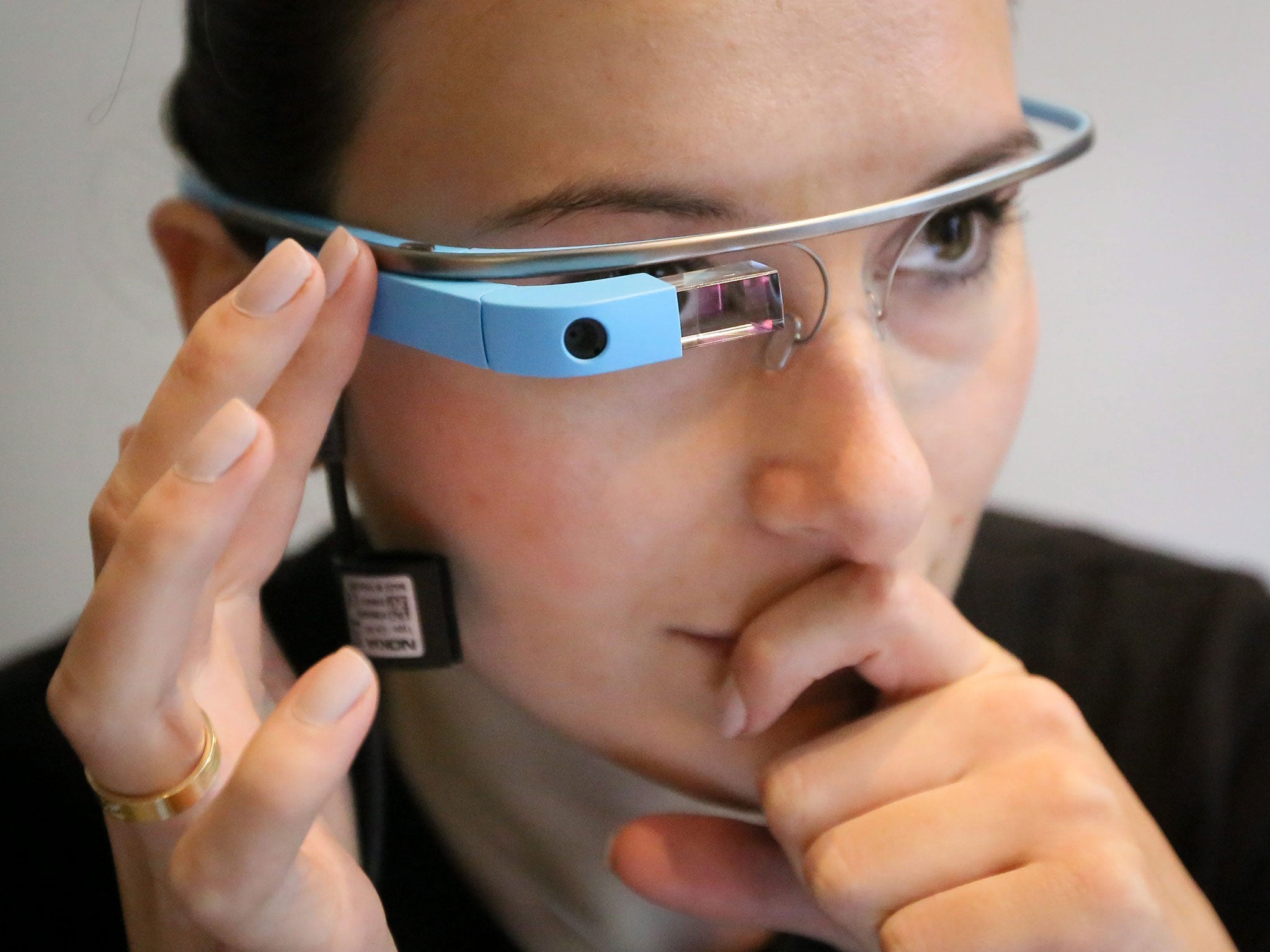Google Glass: Tech giant to halt sales of headset in current form – but vows to look to future
Google insists it remains committed to launching consumer version of eyewear

Your support helps us to tell the story
From reproductive rights to climate change to Big Tech, The Independent is on the ground when the story is developing. Whether it's investigating the financials of Elon Musk's pro-Trump PAC or producing our latest documentary, 'The A Word', which shines a light on the American women fighting for reproductive rights, we know how important it is to parse out the facts from the messaging.
At such a critical moment in US history, we need reporters on the ground. Your donation allows us to keep sending journalists to speak to both sides of the story.
The Independent is trusted by Americans across the entire political spectrum. And unlike many other quality news outlets, we choose not to lock Americans out of our reporting and analysis with paywalls. We believe quality journalism should be available to everyone, paid for by those who can afford it.
Your support makes all the difference.Google has appeared to admit that it hasn’t quite cracked Glass, as the tech giant announced that it would halt sales of its high-tech specs. The company said it remained committed to launching a consumer version of its smart eyewear, Google Glass, but would stop making the headset in its current form and focus instead on “future versions of Glass”.
The Glass Explorer programme, which allows software developers and early adopters to acquire the device for $1,500 (£990), was launched in the US in 2013 and the UK last year, and was expected to be followed by a mass market rollout. Now, Google says the Explorer programme will come to an end and it will stop taking orders for headsets from 19 January.
Originally touted as the first major wearable tech item, Glass was reportedly the brainchild of Google co-founder Sergey Brin, who has rarely been seen in public without a pair since its launch. The device, which consists of a glasses-like frame with a small screen above the user’s right eye, promised to deliver multiple, revolutionary hands-free applications. Yet modest sales were compounded by concerns over privacy – with some bars and restaurants ban Glass, whose users earned the nickname “glassholes”.
Google said it would still offer support to companies that already use Glass.
The announcement comes days after Tesco became the first major UK retailer to launch a Glass app, Tesco Grocery, which lets shoppers browse supermarket shelves and make purchases hands-free. Last year, Reuters surveyed 16 Glass app developers, nine of whom admitted they had abandoned or stopped work on their apps, due to the device’s technical limitations or lack of popularity.
Speaking to an audience in Bogota, Colombia this week, Facebook founder Mark Zuckerberg appeared to suggest another reason for Glass’s failure to take hold in the public imagination: the device just looks “weird”. Asked to predict how tech hardware might evolve, Mr Zuckerberg said: “In another 10 to 15 years … we will have something that we can wear. Maybe it will look like just normal glasses so it won’t look weird like some of the stuff that exists today.”
Despite widespread predictions about so-called “wearables”, no single product has yet taken off spectacularly.
Join our commenting forum
Join thought-provoking conversations, follow other Independent readers and see their replies
Comments